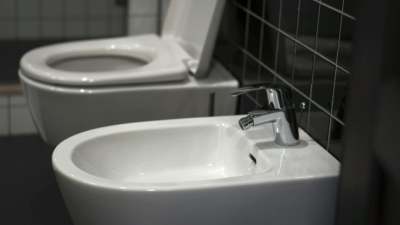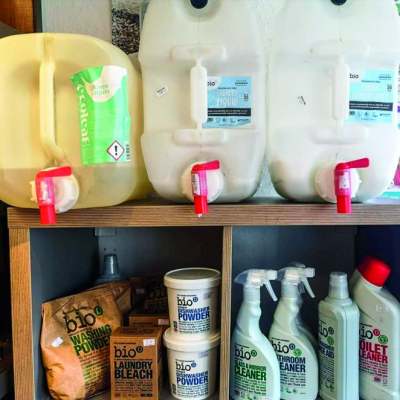Finding an eco-friendly toilet cleaner
We look at the key environmental issues, and the most eco-friendly and cruelty-free options.
Most toilet cleaners contain the same basic ingredients, although some use more bleach, while others are palm oil free, vegan-friendly or organic.
Nearly all come in plastic bottles, although many companies are making moves to reduce single-use plastics with either recycled plastic content, concentrates, refills, no plastic packaging at all or even no packaging.
We identify which are doing that best, and show how to make your own environmentally-friendly toilet cleaner from white vinegar and soda crystals.
In this guide we include some of the big name toilet leaning products like Domestos, Duck, and Mr Muscle, alongside brands like Ecover, Method and Astonish, some small independent brands like Bio D and Greenscents.
Are there harmful ingredients in my toilet cleaner?
Unfortunately, most toilet cleaners contain ingredients which can be harmful to human health and the environment. We look at some common ingredients and chemicals found in toilet cleaners.
Chlorine bleach
Toilet cleaners usually contain chlorine bleach to kill off bacteria and microbes. Many mainstream toilet cleaner makers portray the toilet bowl as one of the dirtiest places in the house and claim we need to use these deadly chemicals to keep ourselves safe.
Chlorine bleach (aka sodium hypochlorite) is a corrosive chemical, toxic if ingested, an eye and respiratory irritant, can irritate the lungs and eyes, and in waterways can become toxic organochlorines, compounds rarely found in nature and which can take centuries to decompose. The industry says that chlorine bleach traces are present at such low concentrations in waste waters, that there is no real possibility of the formation of trace toxic by-products.
According to Lucy Siegle in The Guardian:
"But the real ethical issue centres around manufacture. Bleach is from the organochlorine family of chemicals, compounds rarely found in nature and which can take centuries to decompose. Greenpeace has called for a complete end to organochlorine production.
“Bleach does the job, but what is the job and is it necessary? As we live in the Age of Bacteria immunologist, Gerald N Callahan, sums up: 'Neither humans nor micro-organisms benefit from fully destroying the other. This is not a war, as it has often been described, even though we have an impressive array of weapons - bactericidal cribs and mattresses, toilet cleaners... If it were (a war), we would have lost long ago, overpowered by sheer numbers and evolutionary speed. This is... like a waltz that will last for all of human history. We must hold to our partners carefully and dance well.'"
What other harmful ingredients are there in toilet cleaners?
Our harmful ingredients category awards companies for explicitly excluding certain ingredients that are harmful to human health. These are triclosan, phthalates, parabens, and formaldehyde. There are other potentially harmful ingredients, but we think that if a company has excluded these four, it’s a good indication that they’re likely to prohibit all of the most toxic ingredients.
All of our best buys brands named all four as excluded.




